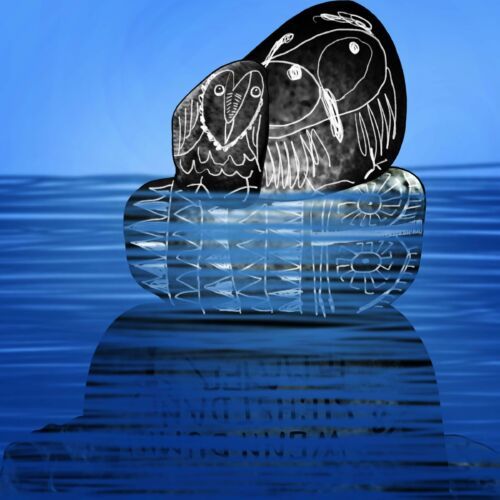A million-year-old skull, ancient toys and gold mummy tongues
The discovery of a well-preserved human skull near Yunxian in central China may provide a more complete picture of the diverse family tree of Homo erectus, a fossil human species that lived in Eurasia in prehistoric times. The establishment of the age of sediments and animal fossils from the skull discovery site suggests that the so-called Yunxian people (two damaged skulls were found earlier at the excavation site) lived between 1.1 million and 800,000 years ago. Homo erectus remains have also been encountered in eastern Africa, eastern Asia and possibly Europe. They date from between 1.9 million and 250 000 years ago.
Thousands of plaques with engraved images of owls from around 5,000 years ago have been found in tombs and pits on the Iberian Peninsula. According to some archaeologists, they represented goddesses and served mainly ritual purposes. According to recent research, however, the plaques served a more mundane function – they were toys made and used by children. Researchers compared plaques with images of owls drawn in 2022 by children aged four to 13 from a Spanish primary school. The modern drawings of owls were very similar to those of the ancient plaques.
Egyptian archaeologists have discovered several ancient tombs containing mummies with gold ornaments in their mouths instead of tongues. Mummies dating back more than 2,500 years have been found in the ancient Qewaisna cemetery north of Cairo. Experts believe that the mummies’ tongues were removed during the embalming process and replaced with gold so that the deceased could speak to the ancient Egyptian god – Osiris, who was the “Lord of the Hereafter”.


























